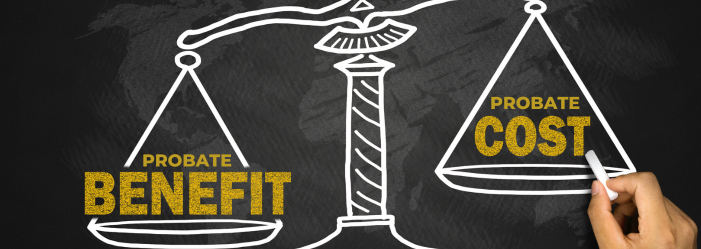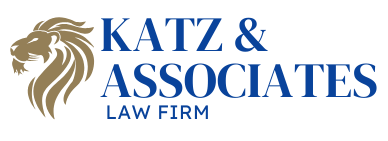Intestate Succession: What Happens When There’s No Will?
Need A Florida Lawyer? Fill Out The Form Below
When There’s No Will, the Law Decides: Avoiding the Pitfalls of Intestate Succession

Intestate Succession: What Happens When There’s No Will?
Intestate succession is the legal process that governs the distribution of a deceased person’s assets when they die without a valid will, known as dying “intestate.” In this scenario, state laws determine how the estate is divided among surviving family members based on their relationship to the decedent. While intestate succession provides a default framework, it often leads to unintended consequences and delays, highlighting the importance of having a will to ensure one’s wishes are fulfilled.
What Is Intestate Succession?
Intestate succession refers to the legal rules and hierarchy that dictate who inherits a deceased person’s assets when they pass away without a will. These laws prioritize close family members and follow a specific order that varies by state, though close relatives such as spouses, children, parents, and siblings generally inherit first. For example, the estate may be split between a surviving spouse and children, or if there are no close relatives, it could pass to more distant relatives. If no heirs can be identified, the estate may “escheat” to the state, meaning it becomes government property.
How Assets Are Distributed Under Intestate Succession
Under intestate succession, assets are typically distributed as follows:
- Surviving Spouse and Children: If the deceased had both a spouse and children, the estate is usually divided between them, though the specific division varies by state. For example:
- In some cases, the spouse may inherit the entire estate if all children are from the same marriage.
- If there are children from a previous relationship, the spouse may receive a portion (e.g., half), with the remainder going to the children.
- No Spouse or Children: If there is no surviving spouse or children, other relatives, such as parents, siblings, nieces, and nephews, may inherit.
- No Living Relatives: If no relatives can be located, the estate “escheats” to the state, making the government the ultimate heir.
- Exclusions: Non-family members, such as close friends, stepchildren, and unmarried partners, generally do not inherit unless specifically named in a will.
Consequences of Dying Without a Will
Dying intestate can lead to several unwanted outcomes and financial implications, underscoring why it is essential to have a will. Key consequences include:
- Lack of Control Over Asset Distribution: Intestate succession laws follow a rigid framework that may not align with the deceased’s wishes. Without a will, assets may be distributed to estranged or distant relatives, while close friends, charities, or non-biological family members may be left out.
- Increased Family Conflicts: The lack of clear instructions can fuel disputes among family members over who should inherit certain assets. A will can prevent these conflicts by providing a clear plan for asset distribution.
- No Guardianship Designation for Minor Children: If minor children are involved, a court will appoint a guardian without input from the deceased. With a will, parents can name a trusted person to care for their children, ensuring their future well-being.
- Higher Costs and Probate Delays: Intestate estates must go through probate court to determine heirs and distribute assets. This process can be lengthy and costly, reducing the estate’s value before it reaches the heirs.
- Exclusion of Non-Family Members: Unmarried partners, stepchildren, and close friends generally do not inherit under intestate laws. Only legally adopted or biological children qualify as heirs, and partners are often left without any legal entitlement to assets.
Intestate Succession in Florida: Key Specifics
In Florida, intestate succession laws prioritize close family members but vary based on family circumstances:
- Surviving Spouse:
- If the decedent had no children, the spouse inherits the entire estate.
- If all children are from the marriage, the spouse also inherits the entire estate.
- If there are children from a previous relationship, the spouse receives half of the estate, while the other half goes to the children.
- Children: Biological and legally adopted children are eligible heirs, inheriting their share if there is no spouse or sharing with the spouse under specific circumstances. Stepchildren, however, are not included unless legally adopted.
- Parents and Siblings: If there is no surviving spouse or children, the decedent’s parents inherit. If parents are deceased, siblings inherit next, and if siblings have predeceased the decedent, their descendants (nieces and nephews) may inherit.
- Distant Relatives: If none of the above relatives survive, distant relatives, such as aunts, uncles, and cousins, may inherit.
- Escheatment to the State: If no heirs can be located, the estate will escheat to the state, a rare outcome as efforts are made to locate even distant relatives.
Certain assets, such as life insurance policies with named beneficiaries and jointly held property, bypass intestate succession entirely, passing directly to beneficiaries.
Financial and Emotional Implications of Intestate Succession
The financial and emotional impacts of dying without a will can be substantial for both the estate and the heirs:
- Increased Probate Costs: Intestate estates often face higher probate costs due to the complexities involved in determining heirs. Court fees, attorney fees, and administrator compensation (typically 3%–5% of the estate value) can significantly reduce the estate’s total value.
- Delayed Asset Distribution: The need to identify and locate heirs can cause delays, which may result in financial strain for beneficiaries awaiting their inheritance.
- Surety Bonds: Courts may require administrators to post a surety bond as insurance for their duties. This cost, usually 1%–2% of the estate’s value, is charged to the estate, adding another expense.
- Higher Tax Burdens: Without proper estate planning, intestate estates may incur higher tax liabilities. Missed opportunities for tax-saving strategies can increase the overall burden for heirs.
- Litigation and Family Disputes: Disputes among heirs over asset distribution can lead to litigation, diminishing the estate’s value further and potentially delaying distribution by months or years.
Why Creating a Will Is Essential
Having a will in place offers numerous advantages over relying on intestate succession:
- Control Over Assets: A will allows you to designate exactly who should inherit your assets, ensuring they go to those you choose, including friends, charitable organizations, or stepchildren.
- Preventing Family Conflict: A clear, valid will can help reduce misunderstandings and conflicts among heirs by specifying each person’s inheritance.
- Designating Guardians: A will enables parents to choose guardians for their minor children, ensuring they are cared for by trusted individuals.
- Reducing Probate Costs and Delays: A well-prepared will can streamline the probate process, reducing court costs and attorney fees, allowing assets to be distributed more quickly and with fewer expenses.
- Inclusion of Non-Family Members: With a will, you can include anyone you wish to benefit from your estate, including partners, friends, and other non-relatives who would otherwise be excluded under intestate laws.
Intestate succession provides a legal framework for distributing assets when someone dies without a will. However, it often results in unintended outcomes, potential conflicts, and higher costs. Creating a valid will ensure your estate is distributed according to your wishes, prevents unnecessary delays, and protects your loved ones from the complications associated with intestate succession.
How Katz & Associates Can Help
At Katz & Associates, we understand the importance of comprehensive estate planning and are here to help you create a plan that honors your wishes while safeguarding your family’s future. Our team can guide you through the process of creating a will, establishing trusts, and ensuring your assets are distributed according to your preferences. Contact us today to discuss how we can help you secure your legacy and provide peace of mind for you and your loved ones.
Powered and Designed by Boost (boostvse.com)













